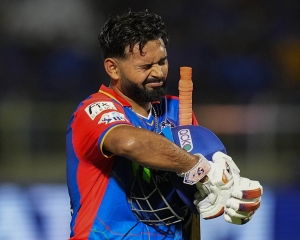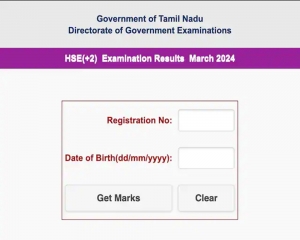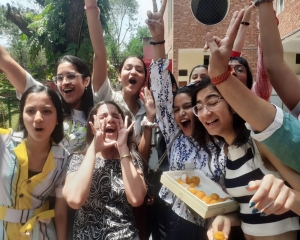There is no law that sanctions killing of an accused of any crime, including that of rape and murder. This forms the basis for a robust judicial system.
What Hyderabad police terms an ‘encounter' is only a self claim, not an established fact as yet. A young lady veterinary doctor was brutally gangraped and murdered allegedly by four guys. The world around had gone mad with rage over the crime. Suddenly one fine morning, police nabbed four guys as accused and the people’s anger died down. Then, a new drama unfolded: As per the police version, at wee hours the perpetrators were customarily taken to the spot where the heinous crime was committed. While being asked to re-enact the crime at the very spot when not much would be visible, all the four accused gave the slip and escaped after snatching police guns. They opened fire at the police. All hell broke loose. And naturally in self-defence, police gunned down all the four.
The police are bound to face a judicial scrutiny as a mandatory follow-up in the wake of the 2015 Supreme Court ruling in the ‘People's Union for Civil Liberties versus State of Maharashtra' case. The police are only an investigating agency and not authorised to adjudicate cases and pronounce verdicts on someone's criminal culpability. Declaring someone guilty falls under the jurisdiction of the law courts.
In the Hyderabad case, police arrested the four saying they committed the crime on the night of November 26-27. The case was still under investigation. The chargesheet had not been filed. Trial had not begun. The court was yet to hear the accused and the prosecution. It was not yet proven that the accused who were shot dead were the actual culprits. Even if they were the culprits, the police were not authorised to take their lives. It is also not clear if the accused were capable, by means of being armed or something similar, to pose threat to lives of the policemen who took them for recreating the crime scene. As a benefit of doubt, it is also not yet clear whether the police exhausted all other means to capture the accused when they allegedly tried to escape.
There are certain provisions to partially allow a police person to cause death of an accused. Section 96 of the IPC says nothing is an offence which is done in the exercise of the right of private defence. As per IPC Section 100, everything would be perfectly legal if the assaulter proves reasonable apprehension that he would have been grievously hurt or killed if he had not acted in self-defence. Similarly CrPC Section 46 also says if an accused or suspect forcibly resists the endeavour to arrest or evade arrest, the police may use ‘all means necessary to effect the arrest'. All the same, it also states that nothing gives police ‘a right to cause death of a person who is not accused of an offence punishable with death or with imprisonment for life’. This could also mean that in cases where offence is punishable with death or life imprisonment, extra-judicial killing or encounter as they are popularly referred to in India is an option available to the police.
However, the Supreme Court in the 2015 case did lay out a detailed 16-point guideline to judge every extra-judicial killing most judiciously. The Hyderabad encounter is one such case of extra-judicial killing that ought to come clean by passing the Supreme Court guidelines. The scrutiny has to be done by a trained jurist to restore people's faith in the rule of law that declares right to life is fundamental.
The NHRC has already said the Hyderabad police were not ‘properly alert' or ‘prepared for any untoward development'. The International Commission of Jurists has also issued a statement asking the Indian Government to conduct an ‘independent and impartial investigation into the apparently unlawful killings' of the four men. In March 1997, former CJI MN Venkatachaliah, the then NHRC Chairperson, had underlined that the police have not been conferred any right to take away the life of another person.
The Hyderabad police are trying to prove that the four suspects were trying to flee by attacking the force. It is very difficult to accept this theory for more than one reason: When the accused are taken out of lockup or prison, they are always taken with adequate guards and under handcuffs. The police team in a case of such gruesome offense would not take chance by inadequately equipping themselves with weapons. Therefore, it has to be assumed that there were a sizable number of escorting people and the accused were taken with handcuffs. In such a situation, there was no question of the accused attacking policemen whilst they were handcuffed. Secondly, assuming that the accused tried to flee, it is settled law that in such a case the escorting policeman is permitted by law to use a firearm but only to hit them on the lower part of their bodies, to avoid their absconding and not to kill them. But they were killed instantly meaning bullets hit them on vital organs.
Not surprisingly, the High Court has taken cognisance of the encounter killing and told the authorities to preserve the dead bodies till the date of hearing.
As is normal, there was instant euphoria over the police encounter and the innocent, gullible people revelled. They hailed the police as hero. Shockingly, some of the top lawmakers too stated publicly that such a police encounter was the most welcome move. Some populist ones among them even suggested lynching of such suspects without being able to realise that lynching would only trigger indiscriminately nonstop abuse of police authority, thereby brazenly undermining the ‘Rule of Law'.
It’s high time the judiciary woke up and engaged in self-introspection to know how unwittingly casual they have turned over the years with regard to heinous crime cases. The criminal justice system has been moving at a snail’s pace which has caused two horrific outcomes: The criminals have lost fear of law and the victims and the common men have lost confidence in law.
Most importantly, the witness protection arrangement in India is flimsy and flawed. Despite several Parliamentary Standing Committees having recommended robust witness protection mechanism, nothing much has come by way of law or norm till date. Thus, most criminals are let off by courts because witnesses turn hostile or simply vanish from the scene. It is the tortoise-speed judiciary that has to mend itself. Judges and magistrates have to take the extra mile in disposing cases much faster. The long vacations have to be drastically shortened. Sunday courts should be encouraged with volunteer judges and magistrates.
So, it is eventually the responsibility of State Governments to establish true fast-track courts without further delay so as to deliver justice in an acceptable time period. The Naveen administration has already decided to establish 45 fast-track courts in Odisha by the close of this year, which is a pioneering move. That’s real big news!

























